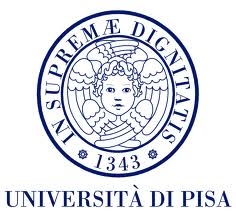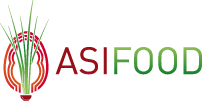Today, the University of Pisa is a prestigious modern centre of teaching and advanced research. It offers 60 undergraduate and 74 postgraduate degree programmes, in all the main areas of knowledge and advanced professional education. The University has 28 doctoral programmes; it also offers 68 third cycle specialisation programmes and 88 special short specialisation programmes of further education at the first and second cycle levels, including an MBA. Research and teaching are combined in all fields and levels.
Overall, the University of Pisa (2011-2012) has about 52000 first and second cycle students, 786 doctoral students and 1100 students enrolled in its more than 50 residency programmes in the medical and health area, or in specialisation courses in other disciplines. The research and teaching staff comprises 1552 permanently employed, and 1338 temporarily employed, persons; the technical and administrative staff numbers 1467.
According to the most recent Shanghai Ranking ARWU 2013, the University of Pisa ranks first among Italian Universities and among the top 150 universities in the world. Its departments of Mathematics and Physics are among the top 100 worldwide. According to QS, Pisa is a “four star” university, with five stars in research, innovation and access.

The 2012 Performance Ranking of Scientific Papers for World Universities (National Taiwan University) ranks Physics at the 96th place, Electrical Engineering at the 100th, Mechanical Engineering at the 104th, and Computer Science at the 127th place.
Almost all departments of the University of Pisa are located in the core of the city, either in prestigious buildings of the old city, or in an ever-growing number of modern structures, some of which are located in the centre and some at its outskirts. Most facilities are within 20 minutes walking distance from the centre of the city.
Something more about the Applied Sciences
Degree programmes offered:
Long Cycle Degree Programmes
Veterinary Medicine (5 years, 300 ECTS credits)
First Cycle Programmes (Undergraduate Studies)
(3 years, 180 ECTS credits)
Agriculture:
- Agricultural Science
- Herbal Sciences (with Pharmacy)
- Viticulture and Oenology
Veterinary Medicine:
- Animal Production Science and Technology
- Animal Breeding Techniques and Canine Education
Second Cycle Programmes (Postgraduate Studies)
(2 years, 120 ECTS credits)
Agriculture:
- Agrifood Production and Agroecosystem Management
- Urban Green Areas and Landscape Planning and Management
- Plant and Microbe Biotechnologies
Veterinry Medicine:
- Animal Production Science and Technology
Joint Programmes:
- Bio Safety and Food Quality
Third Cycle Programmes (Doctoral PROGRAMMEs)
- Veterinary Sciences
- Agricultural Sciences, Food Sciences and Agricultural Environment Sciences
Special and short term programmes
- 3 Veterinary Specialization Schools
- 7 Advanced professional education courses (1 year, 60 ECTS credits)
Working with the business world
The Area of Agriculture has established 770 internship agreements, and the Veterinary area has 450 internship agreements, both with companies with the aim of giving students and graduates the opportunity to gain authentic work experience, enhancing their professional opportunities. Most of the active networks in Veterinary Medicine consist of collaboration with public bodies at national regional and local level in the fields of animal pathology, food inspection, social farming, rural development, animal production, toxicology.
Areas of Excellence in Research
Students interested in excellencies in the Agricultural and Veterinary areas may find research activities focused in different fields like:
- Agronomy and organic production
- Agricultural chemistry
- Sustainable food production
- Biotechnology
- Food and soil microbiology
- Agricultural mechanization
- Irrigation
- Horticultural and fruit production
- Olive, wine and Mediterranean products
- Multifunctional agriculture and rural development
- Social farming
- Food planning and policies industries
- Bio-technologies applied to food inspection
- Animal pathology
- Veterinary and comparative oncology
- Wildlife diseases
- Animal public health
- Microbiology of typical products
- Hygiene rules and procedures
- Animal behaviour
- Food quality in animal production
- Equine nutrition
- Equine breeding and reproduction
- Equine sports medicine
- Toxicology in food production
- Animal assisted therapy
- Parasitology
- Fisheries
International network
- 5 ongoing EU funded projects
- Erasmus Mundus International Master on Rural Development (2 years, 120 ECTS credits)
- Joint Chinese and Italian Centre on Food Safety (CSISA)
- 19 international agreements with universities and research centres
- LLP/Erasmus Study and Placement Programme

